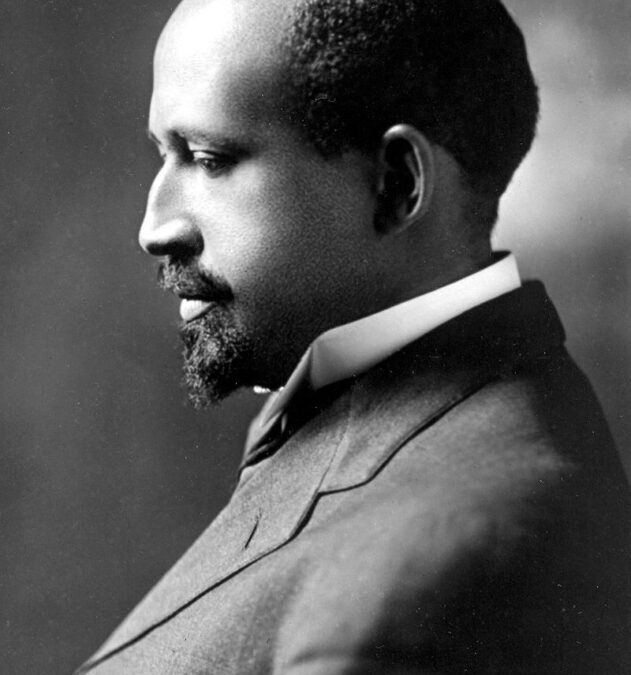Activists, leaders, and pioneers from Africa have made significant contributions to various fields. In this article, we will examine into the lives and achievements of 10 influential African figures who have left a lasting impact on the world. From political leaders to artists, these individuals have shaped history and continue to inspire us with their resilience and vision. Let’s celebrate the remarkable legacy of these African icons who have paved the way for future generations.
Ancient African Leaders
Hatshepsut: The Female Pharaoh of Egypt
One of the most remarkable figures in ancient African history is Hatshepsut, the female pharaoh of Egypt. Reigning over Egypt from 1479 to 1458 BC, she was one of the very few women to hold the title of pharaoh. Hatshepsut was known for her successful reign, during which Egypt experienced peace and prosperity. She was a trailblazer in a male-dominated society, showcasing exceptional leadership and strategic skills.

Mansa Musa: The Richest Man in African History
One of the wealthiest and most influential figures in African history, Mansa Musa, was the emperor of the Mali Empire in the 14th century. His riches were so vast that he is often considered one of the richest individuals in recorded history. Mansa Musa’s pilgrimage to Mecca in 1324 was legendary, as he distributed so much gold in the cities he passed through that it caused inflation in the region for years to come. His extravagant display of wealth put Mali on the map and showcased the empire’s immense resources.
A devout Muslim, Mansa Musa played a significant role in promoting Islam and education in Mali, fostering a vibrant and intellectual society. His legacy as a generous and powerful ruler continues to inspire generations in Africa and beyond.

Anti-Colonial Freedom Fighters
Some of the most influential figures in African history are the anti-colonial freedom fighters who fought relentlessly against European colonial powers to secure independence for their people. These individuals not only led revolutionary movements but also inspired generations to come with their courage and determination.
Toussaint Louverture: The Haitian Revolution Leader
On the island of Hispaniola in the late 18th century, Toussaint Louverture emerged as a prominent leader in the fight against French colonial rule. Born into slavery, Louverture rose to power during the Haitian Revolution, leading the enslaved Black population in a successful uprising that resulted in Haiti becoming the first independent Black republic. His strategic genius and unwavering commitment to freedom made him a legendary figure not just in Haiti but around the world.

Queen Nzinga: The Angolan Warrior Queen
Toussaint
It is impossible to discuss African freedom fighters without mentioning Queen Nzinga of Ndongo and Matamba, in present-day Angola. Queen Nzinga fiercely resisted Portuguese colonization and the slave trade in the 17th century. She was known for her diplomatic prowess, military strategies, and relentless efforts to protect her people from European domination. Queen Nzinga’s legacy as a strong and resilient leader continues to inspire African women and leaders in the ongoing fight against oppression and injustice.

Pan-African Visionaries
Even in the face of adversity, Pan-African visionaries have played a significant role in shaping the narrative of Africa and its diaspora. Two influential figures stand out for their dedication to the cause of Pan-Africanism: Marcus Garvey and W.E.B. Du Bois.
Marcus Garvey: The Father of Pan-Africanism
One cannot discuss Pan-Africanism without mentioning Marcus Garvey, often hailed as the « Father of Pan-Africanism. » Born in Jamaica in 1887, Garvey was a charismatic leader who founded the Universal Negro Improvement Association (UNIA) in 1914. His vision of a united Africa and diaspora, advocating for black economic empowerment, cultural pride, and political self-reliance, inspired millions worldwide.
W.E.B. Du Bois: The Scholar and Activist
Visionaries like W.E.B. Du Bois, a pioneering scholar, and civil rights activist, made indelible contributions to the Pan-African movement. Du Bois, born in 1868, was the first African American to earn a doctorate from Harvard University. He co-founded the National Association for the Advancement of Colored People (NAACP) and tirelessly advocated for civil rights, education, and Pan-African solidarity.
It was Du Bois who famously outlined the concept of the « Talented Tenth, » believing that a leadership class of educated African Americans could uplift the race as a whole. His groundbreaking book, « The Souls of Black Folk, » remains a cornerstone of African American literature and a powerful testament to the struggles and triumphs of black identity.
Modern-Day Change Makers
Nelson Mandela: The Anti-Apartheid Icon
Change. This word encapsulates the essence of Nelson Mandela, a towering figure in the fight against apartheid in South Africa. Mandela’s unwavering dedication to equality and justice led him to spend 27 years in prison for his beliefs. Upon his release in 1990, he continued his mission, eventually becoming the first black president of South Africa. His presidency was marked by reconciliation and unity, steering the nation towards a peaceful transition from apartheid to democracy.
Wangari Maathai: The Environmentalist and Nobel Laureate
An advocate for both environmental conservation and women’s rights, Wangari Maathai was a force to be reckoned with. She founded the Green Belt Movement, an organization focused on planting trees to combat deforestation in Kenya and empower local communities, especially women. Maathai’s dedication to sustainability and social progress earned her the Nobel Peace Prize in 2004, making her the first African woman to receive this prestigious honor.
Nobel Laureate Wangari Maathai’s legacy lives on through the millions of trees planted across Kenya and the inspiration she continues to provide to environmental and social activists worldwide. Her story is a testament to the power of grassroots movements and individual action in creating meaningful change for both people and the planet.
Cultural Icons
Fela Kuti: The Nigerian Musician and Activist
For Icons of African culture, Fela Kuti stands out as a legendary figure. This Nigerian musician, known for pioneering the Afrobeats genre, used his music as a tool for activism and social commentary. Fela fearlessly spoke out against corruption, injustice, and oppression in Nigeria through his songs, earning him a reputation as a voice for the people.
His iconic style and electrifying performances not only entertained audiences but also challenged the status quo, making him a symbol of resistance and change. Fela’s influence continues to resonate today, inspiring artists and activists to use their platforms to drive positive social change.
Miriam Makeba: The South African Singer and Anti-Apartheid Activist
An embodiment of strength and resilience, Miriam Makeba was not only a talented singer but also a fearless anti-apartheid activist from South Africa. Known as « Mama Africa, » Makeba used her powerful voice and global platform to speak out against the injustices of apartheid and advocate for freedom and equality.
The legacy of Miriam Makeba as a cultural icon and activist lives on, reminding us of the power of art and music in driving social and political change. Her music continues to inspire a new generation of artists and activists to stand up against injustice and fight for a better world.

Literary Giants
Chinua Achebe: The Nigerian Novelist and Poet
Not only a writer but also a critic and professor, Chinua Achebe is celebrated as the « father of modern African literature. » His seminal work, « Things Fall Apart, » is a classic novel that has been translated into over 50 languages and explores the effects of colonialism in Nigeria. Achebe’s writing is known for its precise language, deep insight into human nature, and unwavering commitment to showcasing the rich cultural heritage of Africa.
Toni Morrison: The American Novelist and Nobel Laureate
An iconic figure in American literature, Toni Morrison’s powerful and evocative writing has left an indelible mark on the literary world. As the first African American woman to win the Nobel Prize in Literature, Morrison’s work explores deep into issues of race, identity, and the African American experience. Her novels, such as « Beloved » and « Song of Solomon, » have garnered critical acclaim for their lyrical prose and profound exploration of history and memory.
Novelist Toni Morrison’s unmatched storytelling abilities have made her a beloved figure in the literary world. Her narratives resonate with readers across the globe, sparking important conversations about race, gender, and power dynamics. Morrison’s legacy as a writer continues to inspire generations of aspiring authors to fearlessly tell their stories and advocate for social justice through their art.

Ultimately
These ten influential African figures featured in this article have made significant contributions to their communities, countries, and the world at large. Their work across various fields such as politics, literature, music, and activism highlights the rich diversity and talent that Africa has to offer. By learning about these individuals, we can gain a deeper understanding and appreciation of the impact Africans have had on shaping history and culture.
It is necessary to continue celebrating and recognizing the achievements of Africans, both past and present, to challenge negative stereotypes and promote a more inclusive narrative. By acknowledging the contributions of these ten influential figures and many others like them, we can amplify the voices of Africans and inspire future generations to strive for greatness in their own right.
FAQ
Q: Who are some influential African figures that one should know about?
A: There are many influential African figures worth knowing about. Some notable ones include Nelson Mandela, Wangari Maathai, and Chinua Achebe.
Q: Why is it important to learn about influential African figures?
A: Learning about influential African figures is necessary for understanding the rich history, culture, and contributions of the African continent to the world.
Q: How can learning about these figures inspire others?
A: By learning about the accomplishments and contributions of influential African figures, one can be inspired to make a positive impact in their own community and beyond.
Q: Can you provide a brief overview of Nelson Mandela’s impact?
A: Nelson Mandela was a revolutionary leader in the anti-apartheid movement in South Africa. He became the country’s first black president and played a key role in the establishment of a democratic South Africa.
Q: What is Wangari Maathai known for?
A: Wangari Maathai was a renowned environmentalist and political activist from Kenya. She was the first African woman to win the Nobel Prize and is known for her work in promoting environmental conservation and women’s rights.
See also our article : Marcus Garvey’s Legacy – A Motivational Quote For Black Empowerment










